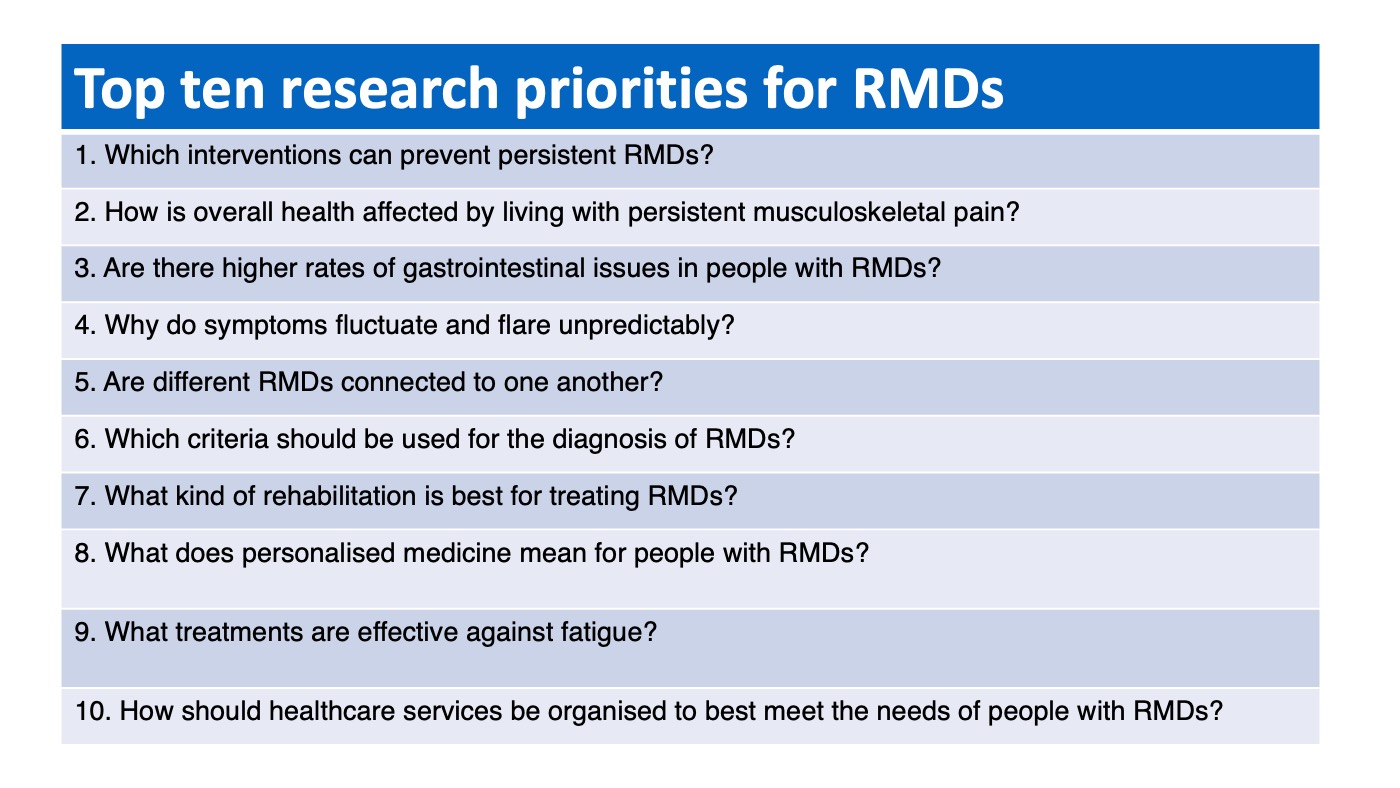Session Information
Session Type: Abstract Session
Session Time: 2:00PM-3:30PM
Background/Purpose: Patient and public involvement (PPI) is gaining increasing recognition as important to ensure research is relevant and to reduce avoidable research waste. Active collaboration between patients and researchers in development and implementation of scientific projects is important to ensure a good match between patient’s priorities and the scientific focus in research, contribute to more patient-oriented medical research agendas, enhance patient friendly design of research projects, and creating support for implementation. Bemden et al. in BMJ Rheumatology – states that “Patient and public involvement in rheumatic and musculoskeletal research is an idea whose time has firmly come” (2023) 7:12.
Interest in improved PPI also stems from knowledge that 85% of all research funds are avoidably wasted (Chalmers, Glasziou, Lancet 2009). Identifying knowledge gaps in partnership with end users of medical research, in this case both clinicians and patients, can help reduce research waste.
PPI can be most effective when used to identify and prioritise knowledge gaps for producing new research projects – so that patients are effectively involved in the early planning stages of new projects, but this process can be time consuming and complicated.
Organising effective PPI processes to ensure value for all parties and increase effectiveness of research funds, requires new systems and structures to be developed and tested. The James Lind Alliance initiative has developed methods for Priority Setting Partnerships that ensure real engagement.
Methods: To identify key questions most relevant for patients with RMDs, a priority-setting project was conducted using methods established by the James Lind Alliance (JLA)4. A steering group comprised of patients and multidisciplinary clinicians led the process. 239 questions were first gathered from patients living with RMDS who were members of five collaborating RMD patient organisations. The questions covered six broad themes including diagnosis, treatment, aetiology, symptoms and comorbidities, healthcare systems and daily life.
After rejecting out-of-scope submissions, removing duplicates, and merging similar questions, 56 questions remained and were included in a web-based ranking survey distributed to more than 40,000 patient organisation members.
5346 individuals responded to the survey, the results of which were used to generate a shortlist of 20 questions in line with the James Lind Alliance methodology. Fourteen patient representatives from all 5 organisations were then brought together for a final prioritising workshop in Oslo, Norway September 2022.
Results: The result of the workshop was a consensus on a final ranked list of questions, including the top ten priorities for future research.
The top ten identified priorities (panel) reflect patients’ leading concerns around uncertainties in the field of RMDs. These concerns were thematically focused primarily on understanding symptoms and improving treatments.
Conclusion: The identified priorities are intended to provide a platform for ensuring responsiveness of future research activity and funding to questions that are most important for people living with RMDs.
To cite this abstract in AMA style:
Fryxelius a, Martinsen A, Løchting I, Hartford Kvæl L, Lunestad A, Bergland A, Storheim K. Nothing About Us Without Us: Top 10 Research Priorities from Patients – A James Lind Alliance Project for Public and Patient Involvement (PPI) [abstract]. Arthritis Rheumatol. 2023; 75 (suppl 9). https://acrabstracts.org/abstract/nothing-about-us-without-us-top-10-research-priorities-from-patients-a-james-lind-alliance-project-for-public-and-patient-involvement-ppi/. Accessed .« Back to ACR Convergence 2023
ACR Meeting Abstracts - https://acrabstracts.org/abstract/nothing-about-us-without-us-top-10-research-priorities-from-patients-a-james-lind-alliance-project-for-public-and-patient-involvement-ppi/

